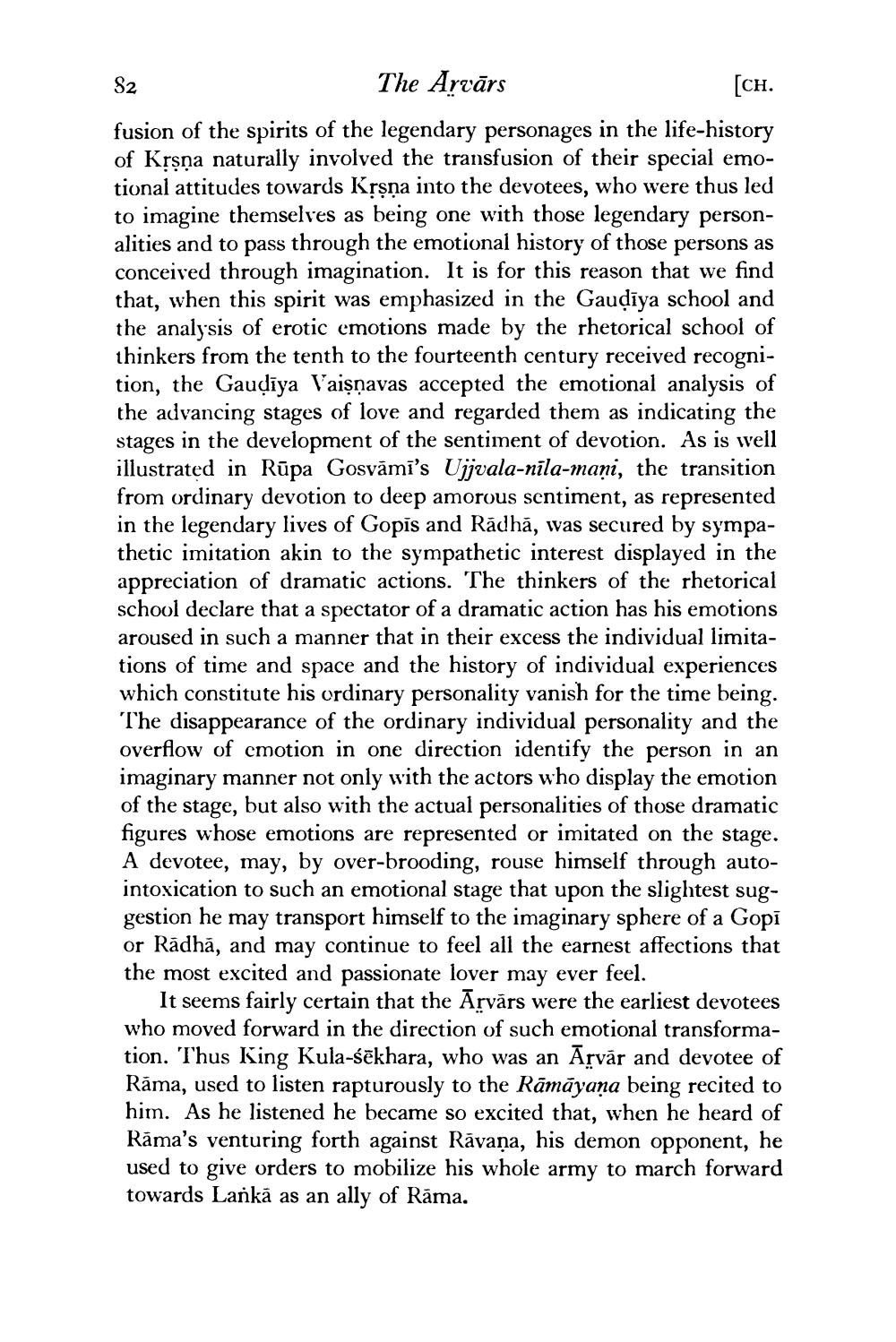________________
S2 The Arvārs
[CH. fusion of the spirits of the legendary personages in the life-history of Krsna naturally involved the transfusion of their special emotional attitudes towards Kļşņa into the devotees, who were thus led to imagine themselves as being one with those legendary personalities and to pass through the emotional history of those persons as conceived through imagination. It is for this reason that we find that, when this spirit was emphasized in the Gaudīya school and the analysis of erotic cmotions made by the rhetorical school of thinkers from the tenth to the fourteenth century received recognition, the Gaudiya Vaisnavas accepted the emotional analysis of the advancing stages of love and regarded them as indicating the stages in the development of the sentiment of devotion. As is well illustrated in Rūpa Gosvami's Ujjvala-nila-maņi, the transition from ordinary devotion to deep amorous sentiment, as represented in the legendary lives of Gopis and Radhā, was secured by sympathetic imitation akin to the sympathetic interest displayed in the appreciation of dramatic actions. The thinkers of the rhetorical school declare that a spectator of a dramatic action has his emotions aroused in such a manner that in their excess the individual limitations of time and space and the history of individual experiences which constitute his ordinary personality vanish for the time being. The disappearance of the ordinary individual personality and the overflow of emotion in one direction identify the person in an imaginary manner not only with the actors who display the emotion of the stage, but also with the actual personalities of those dramatic figures whose emotions are represented or imitated on the stage. A devotee, may, by over-brooding, rouse himself through autointoxication to such an emotional stage that upon the slightest suggestion he may transport himself to the imaginary sphere of a Gopi or Radha, and may continue to feel all the earnest affections that the most excited and passionate lover may ever feel.
It seems fairly certain that the Arvārs were the earliest devotees who moved forward in the direction of such emotional transformation. Thus King Kula-śēkhara, who was an Asvār and devotee of Ráma, used to listen rapturously to the Rāmāyaṇa being recited to him. As he listened he became so excited that, when he heard of Rāma's venturing forth against Rāvana, his demon opponent, he used to give orders to mobilize his whole army to march forward towards Lankā as an ally of Rāma.




